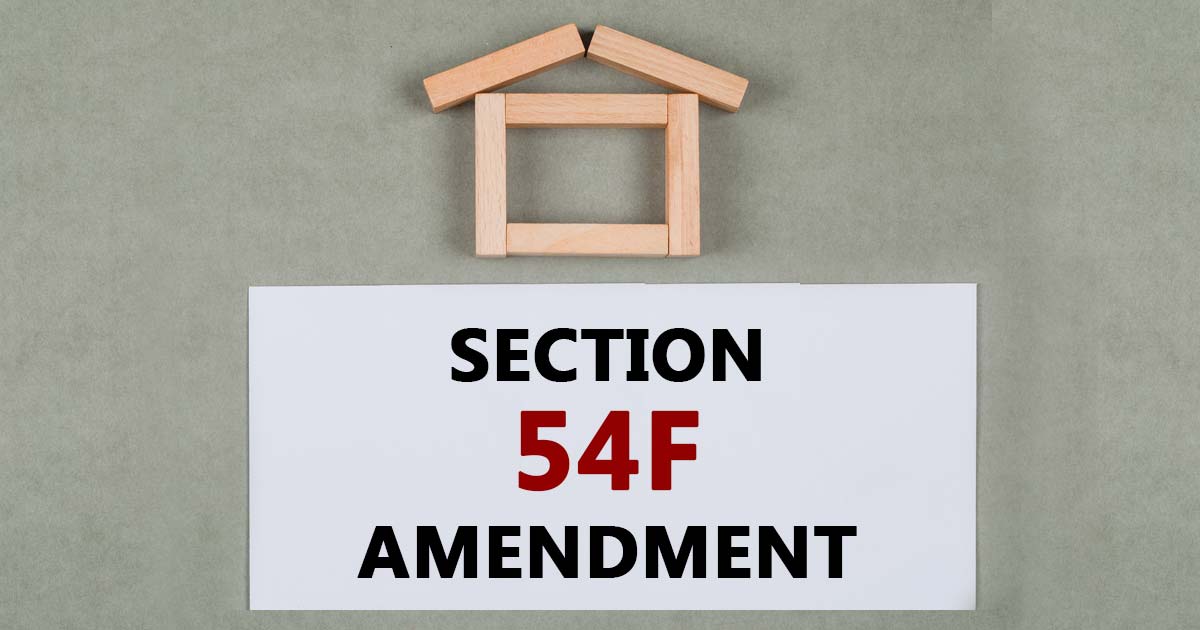
The Income Tax Appellate Tribunal (ITAT), Bangalore, has ruled that according to the 2015 amendment made in section 54F of the Income Tax Act 1961, the benefit of capital gain deductions will be available to the one residential property only.
Latest Update
14th November 2022
- The ITAT of Pune bench has ruled that the construction of houses cannot be completed within 3 years, thus, denying the capital gain exemption under Section 54F. Read order
29th August 2022
- Chennai’s Income Tax Appellate Tribunal (ITAT ) has ruled that the two residential flats operated for commercial purposes should be excluded for deduction as per section 54F of the income tax act. read more
26th July 2022
- ITAT Delhi has ordered a judgment for Mr Ramesh Chander Ni Jhawan. According to the order, the capital gain exemption is permitted even if invested sums are used for the purchase of a new home without a permit within two years of investing in capital gain accounts. read more
22nd July 2022
- The Income Tax Appellate Tribunal (ITAT) of the Pune bench has published an order regarding reinvestment in twin residential units that is eligible for income tax section 54F deductions. Read more
09th May 2022
- The ITAT Bangalore has showcased the judgment for the Sri Mathew Pradeep Francis. The judgment said that deduction is permitted for the investment under section 139(4). Read More
The issue was raised the legal heir, Abraham Cherain, of a deceased assessee, Susan Cherain. During an assessment year, an assessing officer had denied the benefits of capital gain deductions under section 54F to the deceased assessee stating that the 2015 amendment of the Income Tax Act 1961 provides that such benefit of capital gain deductions will be available to the one residential property only. He also found that the benefits will not be provided as the assessee had more than one residential property on the date of transfer. However, the assessee claimed that he was liable to get the benefit of double deduction according to the provisions.
The assessee claimed that before the amendment, section 54F covered all the residential houses and villas of the assessee. Moreover, the assessee also said that according to the JDA amendment dated 23rd March 2005, the assessee received 35% of the total built-up area of the property (35% of apartments constructed, 35% of the common parking, and 35% of the garden and terrace rights) for private use and the rest of 65% was divided for the common use of owners, so the assessee claimed the deductions of capital gains under section 54F of the Income Tax Act 1961 
The tribunal took the orders of the Madras and Karnataka High Courts under consideration which said that the amendment to section 54F and ‘a” by Finance (No.2) Act, 2014, dated 1st April 2015, the benefit of capital gain deductions will be available to the one residential property only. “Courts have consistently held that post amendment benefit of section 54F will be applicable only to one residential house in India whereas prior to the amendment residential house would include multiple residential houses/units,” the Tribunal ruled.
Read Also: What Income Tax Provisions Say for Property Sale by NRI in India? 
The tribunal, with Beena Pillai as one of the members, further said, “in view of consistent view taken by jurisdictional High Court, as well as other High Courts, we are of the opinion that assessee is entitled to deduction under section 54F of the act in respect of 35% of constructed property received by her.”









